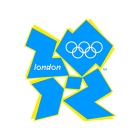In another common refrain, Canada’s “Own the Podium” slogan appears to be doing irreparable damage to our international image . . . according to a few bored reporters. Again, it seems to shock and dismay people that Canadians might actually want to compete and win in the Olympics — apparently that’s not “Canadian”. Dahlia Lithwick looks at some of the “we can’t believe it” coverage:
Someday, someone is going to explain to me why it is that journalists so frequently speak about Canadians as though we are all about 2 feet tall and 7 years old. See, for instance, this exceedingly strange New York Times piece about how those tiny little Canadians are building a “giant laser” or some such thing, in order to bring home more Olympic medals than ever before. Look! Look at all those funny little Canadians in their funny little hats, trying to be good at sports! Look at them spending their whole allowance on a top-secret program to create a human slingshot for speed skaters and “super-low-friction bases for snowboards and [to find out] whether curling brooms really melt the ice.” The Seattle Times describes this effort as “Canada’s non-nuclear Manhattan Project.”
It was bad enough when they were calling us “un-Canadian” and “inhospitable” just for wanting to win medals. It got uglier last Friday when Georgian luger Nodar Kumaritashvili was tragically killed in a practice run. The Canadians’ decision to limit outsiders’ use of Olympic facilities before the Games began — a maneuver that every other host country pulls — got spun as “an unfortunate nationalistic impulse” that put patriotism ahead of safety. The subtext: When Canadians care about winning just as much as the rest of the world, can there be any more warmth and goodness left in the universe?
The flip-side of all this is . . . the world barely even knows that Canada exists. Why do we get all worked up about how the world “sees” us? More evidence that Canada still needs to grow up a bit and get over the teenage angst. It’s unbecoming in teenagers, but it’s much worse for a nation.
Of course, this effort to caricature Canadians has been aided most of all by Canadians. You know you’re suffering an international feistiness deficit when your prime minister begs his fellow citizens to show the world a little more testosterone. “We will ask the world to forgive us this time,” declared Stephen Harper in an effort to rouse Canadians into showy displays of patriotism, “this uncharacteristic outburst of patriotism and pride, our pride of being part of a country that is strong, confident and stands tall among the nations.”
What’s strange about all this deep Freudian analysis is that Canada has done pretty darn well on the hardware front in recent years. It jumped from 13 medals in 1994 to 24 at Turin in 2006. Canada ranks seventh overall in winter medal wins. Not bad for a country of 33 million people where per capita spending on Olympians has historically been a fraction of what some other countries spend. Is it possible that Canada has been doing just fine at the Winter Olympics but nobody ever bothered to notice?
However, I have to take issue with one thing she writes:
It has always seemed to me that sweeping efforts to identify a Canadian national character are pointless. It’s a vast country built on compromises between French and English, Canadians and the British. The nation differs so fundamentally from east coast to west that, Olympics notwithstanding, it’s hard to know what a Newfoundlander and a British Columbian might find to talk about.
Get two Canadians together from different parts of the country, and they’ll immediately have something to talk about: their shared loathing of Toronto . . .

 Government zeal in pursuing anyone suspected of harbouring paedophilic tendencies may shortly rebound — with unintended consequences for the
Government zeal in pursuing anyone suspected of harbouring paedophilic tendencies may shortly rebound — with unintended consequences for the 

